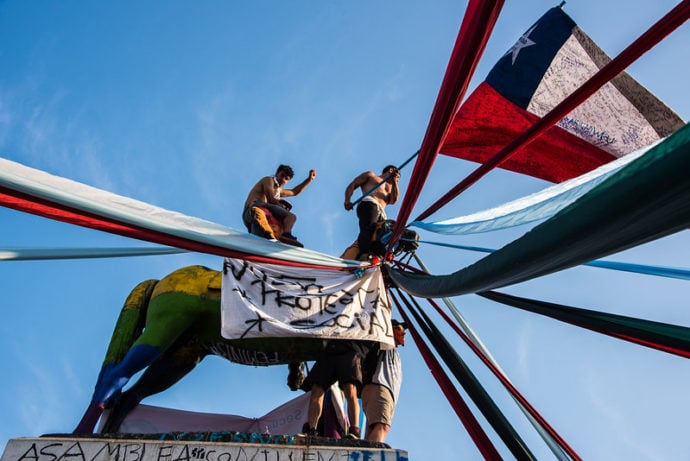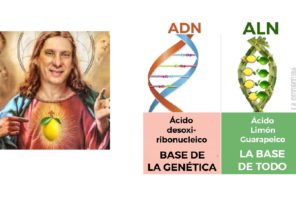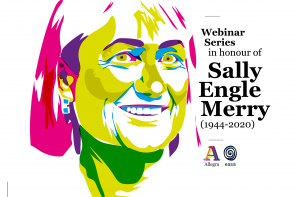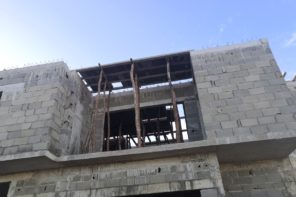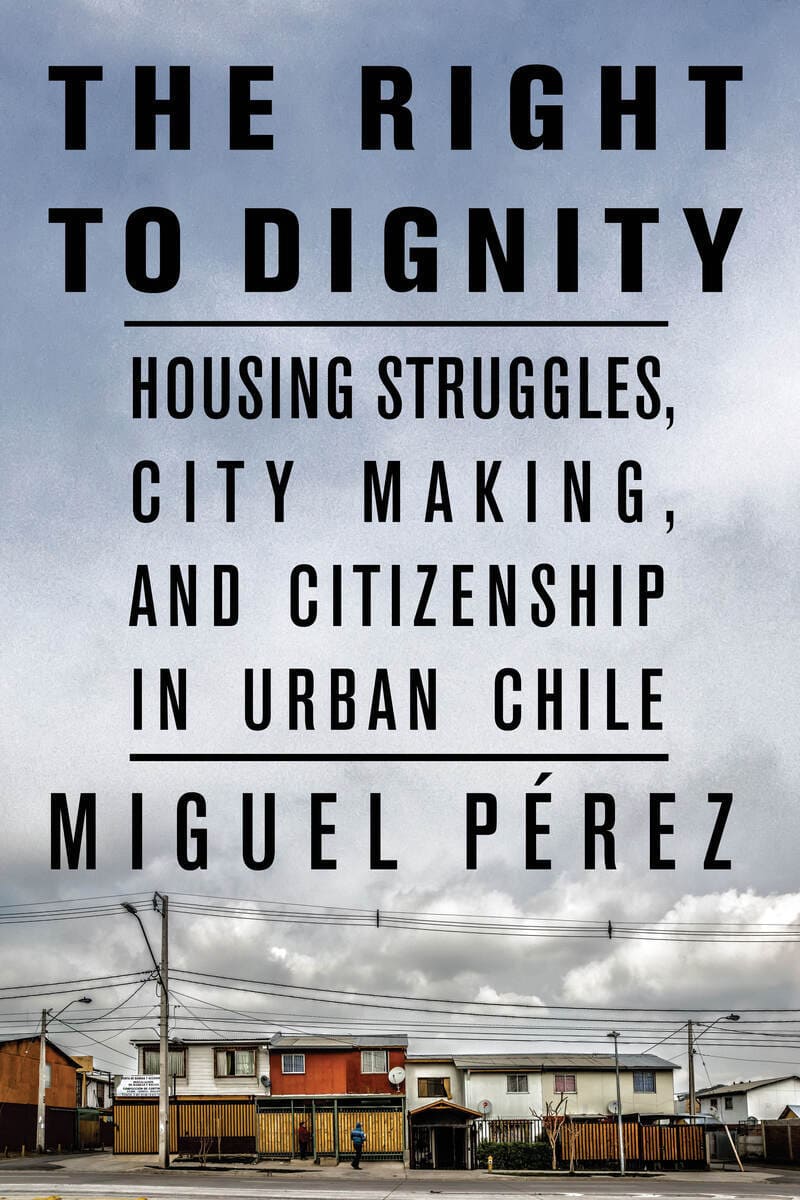
Together the chapters in each of these two parts provoke us to reflect critically on the imaginations of citizenship amidst the inequalities spawned by neoliberalism, for which Chile is of course the poster-child.
The two parts into which the book is divided help readers navigate the twists and turns in the collective action (Part 1) undertaken by the pobladores, as Chile’s urban poor call themselves, and their political subjectivity as dignified subject-citizens (Part 2). Together the chapters in each of these two parts provoke us to reflect critically on the imaginations of citizenship amidst the inequalities spawned by neoliberalism, for which Chile is of course the poster-child. Against views dominant on the left as well as the right, the book is a timely reminder that poor people’s engagements with welfare programs in neoliberal regimes can generate unanticipated and unintended mobilisations.
Chapter 1 introduces the context of the study and provides a flavour of its intellectual and conceptual moorings: Perez helpfully clarifies his disinterest in “determining whether housing protests in neoliberal Chile lead to subversive social movements” and refuses to “affirm or deny the existence of the pobladores as revolutionary collective actors” (page 17)- approaches that promise an inductive rather than a reductive analysis in the chapters to follow. Chapter 2 situates the Movimento de Pobladores in the context of a Chile that was rapidly urbanising since the 1930s, leading to an explosion of a housing crisis in the periphery of its capital and efforts by subsequent governments to mitigate against this crisis by offering (but not always delivering) home ownership. Chapter 3 critically reflects on the “waiting” induced by the offer of home ownership and pushes back against criticisms that waiting demobilised the pobladores.
Perez illustrates the ways in which deploying the vocabulary of dignity allows pabladores to “constitute themselves as ethical subjects capable of addressing rights-based claims to the state”.
Chapter 4 explores the contested meanings associated with the description of the urban poor as pobladores, embraced by the urban poor and their movement, but shunned by the bureaucracy as leftist. Chapter 5 elaborates the “politics of effort” among the movement activists- “a system of rights distribution grounded on narratives of personal and collective effort through which the urban poor legitimise their political membership and, as a result, their capacity to demand rights (e.g. to housing, to the city, to stay put)” (p. 123). Chapter 6 distils the insights from the previous chapters to reflect on the activists’ understanding of housing as a means to ensure la vida digna, a life with dignity- a decent society “whose institutions,” to borrow from Avishai Margalit (1996), “do not humiliate people”. In critical conversation with ethnographic explorations of (un-)dignified citizenship (Cleaveland, 2005; Han, 2012; Hashemi, 2020; and Nuitjen, 2013), Perez illustrates the ways in which deploying the vocabulary of dignity allows pabladores to “constitute themselves as ethical subjects capable of addressing rights-based claims to the state”.
The concluding chapter reflects on the 2019 estadillo social, the social uprising across Chile: one of the highlights of the uprising was the renaming of Santiago’s most important public square as Plaza de la Dignidad, suggesting the term’s widespread resonance well beyond a single social movement. The protestors coined the motto hasta que la dignidad se haga costumbre (“until dignity becomes custom”, the title of Perez’ concluding chapter) to demand a new constitution that would secure social rights and replace the neoliberal constitution imposed on Chileans by General Pinochet’s military dictatorship. The book closes on the hopeful spark generated by the results of the October 2020 plebiscite in which Chileans voted to have their constitution rewritten by a constitutional convention. The subsequent rejection of a progressive constitution proved a painful reminder that the struggle for a life of dignity was indeed akin to a horizon- ever shifting, offering direction, seemingly within reach but never quite. In this respect, the language of “political horizon” frequently deployed throughout the book could not have been more apt.
The analysis presented in the Right to dignity prompts further avenues of fruitful research. One such area is the perceived tension between universal and differentiated conceptions of citizenship. While the distinction between the two is sometimes overemphasised, might it be possible to think of these as modalities of expressing claims, rather than conceptions of membership in the political community? What might be the perception of racial/ ethnic minorities among the pobladores on this question? Poor people are not, after all, a homogenous category and are often acutely aware of their internal heterogeneity. Pretending that these do not exist does more harm than good to the cause of creating a unified political subject. Perez himself Perhaps future work can illuminate not only the tensions but also the complementarities between universal and differentiated understandings of citizenship and modalities of claiming it.
The hopefulness that informs The Right to dignity might appear quaint, hopelessly naïve, to many observers. As fear, anxiety, hatred and disappointment threaten to engulf us, it is easy to lose sight of the possibilities offered by hope. And yet, as I have argued elsewhere (Roy, 2023; Roy et al, 2022) hope remains stubbornly persistent, defying hatred and fear, renewing imaginations of democratic citizenship. Perez’s masterfully crafted work is a useful reminder of the persistence of such hope. It illustrates the recent trend towards “anthropologies of the good” against the reaction to what Sherry Ortner (2016) has called “dark anthropology” which appears so attractive to social scientists. This of course is only one reason for it to be widely read, debated, and celebrated.
References
Cleaveland, Carol. 2005. A desperate means to dignity: Work refusal among Philadephia welfare recipients. Ethnography 6(1): 35-60.
Han, Clara. 2012. Life in debt: Times of care and violence in neoliberal Chile. Berkeley: University of California Press.
Hashemi, Manata. 2020. Coming of age in Iran: Poverty and the struggle for dignity. New York: New York University Press.
Margalit, Avishai. 2016. The decent society. Cambridge MA: Cambridge University Press.
Nuitjen, M. 2013. The perversity of the citizenship game: Sum upgrading in the urban periphery of Recife. Critique of Anthropology 33(1): 8-25.
Ortner, S. 2016. Dark anthropology and its others: Theory since the eighties. HAU: Journal of Ethnographic Theory 6(1): 47-73.
Roy, Indrajit. 2023. Ordering hope: Reimagining the future of citizenship. IGDC Working Paper 3.
Roy, Indrajit, Schattan, Vera P. Szabzon, Coelho. and Szabzon, Felipe. 2022. Feeling like a citizen: hope amid social exclusion in São Paulo during the Covid-19 pandemics. Citizenship Studies
Featured image by Paulo Slachevsky, courtesy of Flickr.com.

